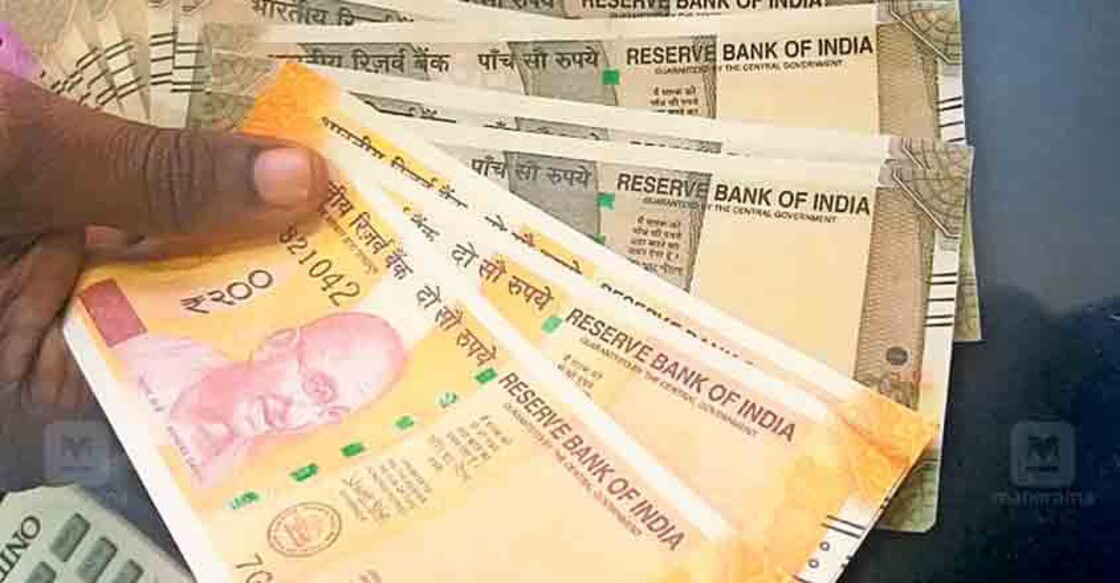Kerala racket printed fake notes that vied with the real ones

Mail This Article
Attingal: The Kerala Police have busted a racket of fake currency pushers with the arrest of five men. In an operation carried out in two districts of Kerala, the state police arrested five persons with fake currency notes worth Rs 20 lakh and seized equipment used to print them. The fakes notes seized by the cops were apparently better than the original.
Attingal police arrested four persons, including the main accused, and Kozhikode Feroke police nabbed one. Those arrested from Attingal, which is Thiruvanathapuram district, include main accused Kunnamangalam native Shemir (38), Kadakkavoor native Rajan Pathrose (61), Chirayinkeezhu native Nasser alias Prathapan (48) and Pothan Kadu native Abdul Wahab (68).
Another accused, Mangaluru native Unnikrishnan alias Rashid, was arrested by the cops in Feroke. The police suspect that Rashid is the conduit of fake note distribution in Thiruvananthapuram. He had married a woman from Feroke some 25 years ago and settled there.
"It is difficult to spot a fake note in one look. The fake notes were mixed with originals during transactions in the markets. The fake notes were mostly used in fish markets and beverage outlets," said the cops.

The accused have been remanded by the court.
Fakes on demand
The gang was making Rs 2,000, Rs 500, and Rs 200 notes in the new series. First, they scan a note and take its photocopy. Then they print it on A4 75 GSM paper. Colours are added as per requirement. The security thread is made out of the thread used in wedding invites; the thread is heated and cut according to the required size.
They use to provide Rs 3 lakh in fake notes to original notes worth Rs 1.10 lakh. Rs 20,000 is taken as commission for Rs 1 lakh. The gang members scout for those in demand, inform Shemir about the requirement, and the fake notes are sent through other accused. The cops have managed to gather proof to show that Shemir had visited Attingal thrice.

The accused told the cops that damaged notes, the notes with colour differences and those were the print was not clear on both sides were destroyed. The cops said that further questioning of Shemir could reveal where the fake notes have been distributed.
Costly miss
A hospital visit by one of the racketeers did the gang in. On Wednesday evening, accused Pathrose visited a private hospital for treatment; he first gave a fake note of Rs 500 and then three Rs 2,000 fake notes to pay the bill. The hospital authorities got suspicious and informed the cops, and the gang was caught, said the police.
Pathrose was taken into custody and questioned, leading the cops to other members of the gang. Pathrose was in a Gulf country where he lost Rs 50 lakh in a business, forcing him to return to Kerala. The once well-off man wanted to regain his lost money and started dealing in fake notes. The counterfeits were printed by Shemir under the disguise of a DTP centre at Kallanthode in Kozhikode.
Shemir, who was jailed earlier in another case, had started printing fake notes after getting the know-how from his fellow prisoners who were arrested over counterfeiting.
Aide lured
The cops used Nasser to trap Shemir by calling him over phone over a deal. The latter was told a party needed Rs 4 lakh in fake notes. Shemir landed on Thursday morning in a KSRTC bus with the money and was caught red-handed. The Attingal police have recovered fake notes worth Rs 6.5 lakh from the accused. The rest of the notes were recovered by the Kozhikode cops.
The police team that busted the gang included DySP K A Vidhyadharan, ISHO V V Deepan, SI M G Shyam, ASI V S Pradeep and CCPOs A Saleem, S Jayan, Pradeep, B Dileep, Shinod and Udayakumar.

